Duarte: Focus on institutions for development
Updated: 2014-10-16 11:30
(UNECA)
|
||||||||
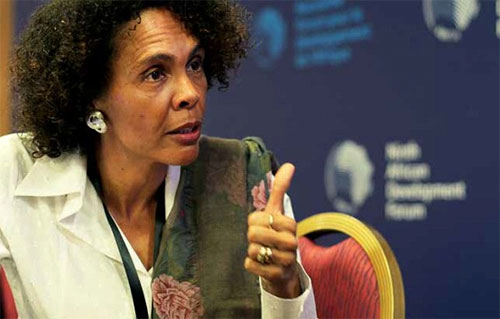 |
|
Governance and institutional reform are central to Africa's solutions to asset flight and inequality, says Duarte, Finance Minister of Cabo Verde's. |
Political commitment and strong institutions are the key to managing Africa's looming challenges of economic inequality, illicit financial flows and climate change, according to the finance minister of Cabo Verde, Cristina Duarte.
Duarte has announced her candidacy for the presidency of the African Development Bank when the institution's current head, Donald Kaberuka, steps down next year, and is keen to use her home country's experiences to promote development around the continent.
Speaking on the sidelines of the United Nations Economic Commission for Africa's African Development Forum in Marrakech, Duarte says that the solutions to problems—such as rising inequality amongst some of the continent's fast-growing economies—are well known.
"To address economic inequality is not a technical is- sue. Everybody knows how to do it. It is more a question of political will to do it and to accept today that Africa needs to adopt cross-border good governance, accountability and transparency," she says.
"The first step is to get the basics done. Don't start reasoning on more complicated issues if you don't have the basics: macroeconomic consolidation, public cost stability, social stability. You are supposed to invest in education and in health… inequality is political will, it's good governance, it is commitment."
These principles of transparency and good governance are "little by little… entering into our DNA," she adds.
Cabo Verde, which is a small, island nation without many natural resources, has achieved middle income status and begun to rise up the World Bank's Doing Business rankings after a number of reforms to its regulations and business environment. Strong institutions and investments in institutional capacity have underpinned its development and laid the foundations for future growth, Duarte says. This should mean that the country can avoid the so-called "middle income trap", where countries achieve a certain level of development but are un- able to move beyond it due to a lack of differentiation or specialization.
"The World Bank has been warning us about this middle income trap," she says. "My response to them is very clear. One of our competitive advantages in avoiding the middle income trap is exactly what we have been doing to reach the middle income [status]. You need to be consistent from a public policy standpoint. Sometimes this is what is missing a little bit in Africa. When you believe that this is your vision, just stick to that and you will find an exit."
The same is true of curtailing the continent's problems with illicit financial flows. Billions of dollars are lost annually, which Duarte also attributes to poor institutions.
"If you have a dysfunctional country: no enforcement law, no regulatory framework, you have not invested in institutions, believe me, the private sector by itself will not be the driver in terms of fighting illicit financial flows. In order to fight illicit financial flows, in my opinion, we need to build on institutions."
This process of institutional reform and improvement will not be quick, Duarte says, but it will bear fruit in the end.
"In order to have strong institutions you have to have strong human capital. In order to have strong human capital you need to start investing, because it's a long process," she says. "In Cape Verde we started universal education in 1975. Cape Verde is close to the Millennium Development Goal [on primary education]. You cannot build institutions in one day." — PG
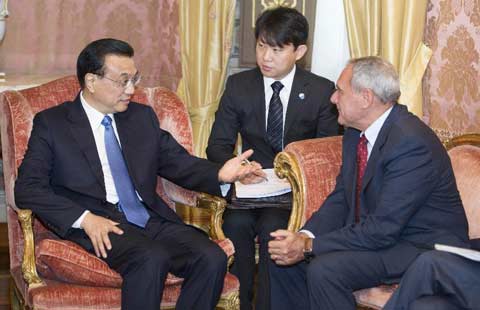
 Li pledges stronger parliamentary exchanges with Italy
Li pledges stronger parliamentary exchanges with Italy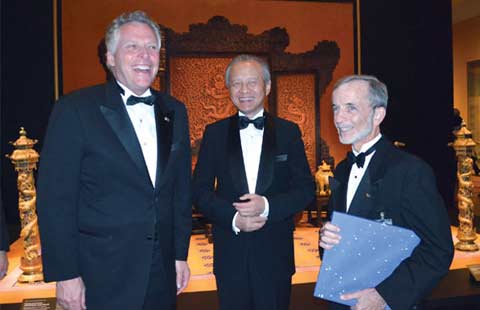
 Forbidden City art goes on display
Forbidden City art goes on display
 Photo Beijing 2014 kicked off
Photo Beijing 2014 kicked off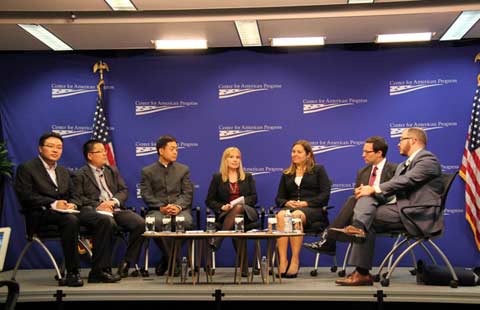
 Bilateral difficulties on manageable track
Bilateral difficulties on manageable track
 All eyes on White Cane Safety Day
All eyes on White Cane Safety Day
 Taiwan photographer depicts NYC on grand scale
Taiwan photographer depicts NYC on grand scale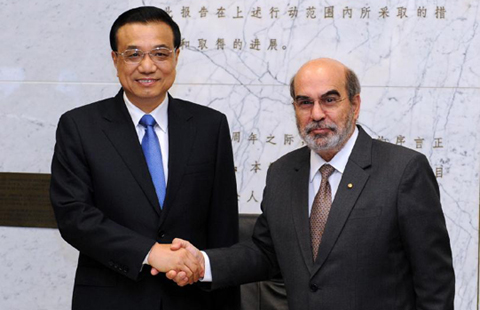
 Premier Li meets director-general of UN FAO in Rome
Premier Li meets director-general of UN FAO in Rome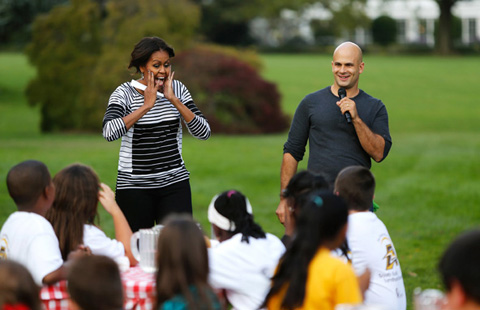
 White House also produces harvest joy
White House also produces harvest joy
Most Viewed
Editor's Picks

|

|

|

|

|

|
Today's Top News
Premier Li sows the seeds for farming
US CEOs wish trade treaty a priority
China singled out for 'important' role in Africa's development
Obama holds Ebola meeting
Exporters lower sights for sales at Canton Fair as woes persist
'Main course' still ahead, Li says
HK leader says protests hatched for more than year
Li pledges parliamentary exchanges with Italy
US Weekly

|

|







